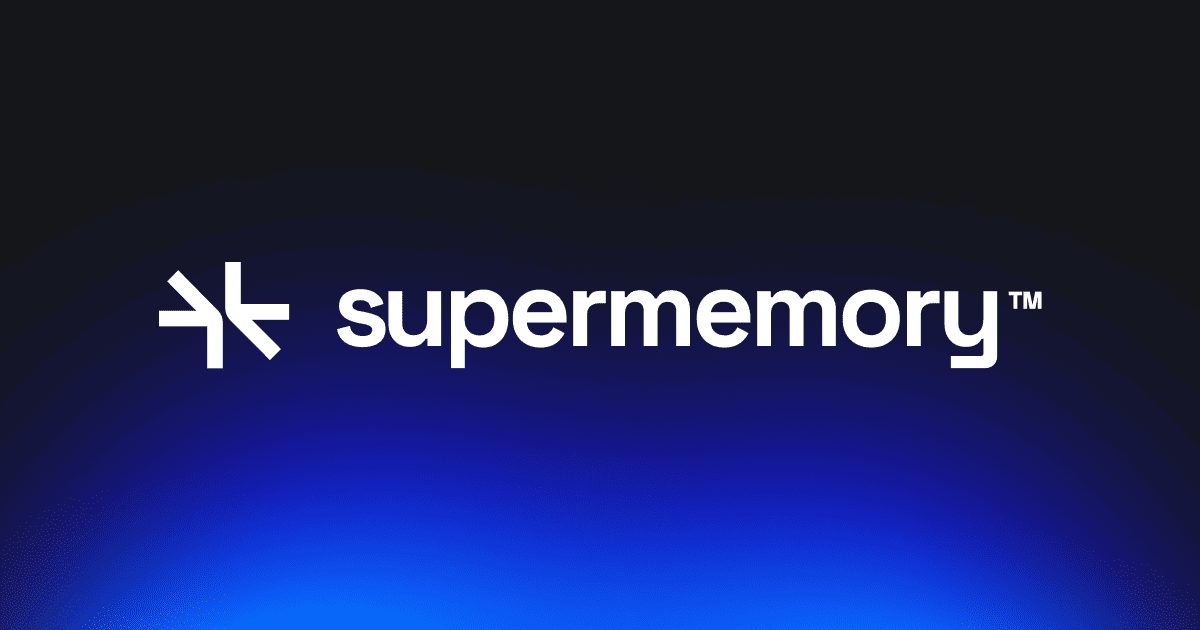
Dhravya Shah, a 19-year-old founder, has secured $2.6 million in seed funding for his startup, Supermemory. The company is developing a universal memory API to solve long-term context limitations in artificial intelligence applications, attracting investment from key technology executives.
The development of Supermemory addresses a core challenge in artificial intelligence: while the context windows of AI models for remembering information within a session have grown, they struggle to retain knowledge across multiple interactions. This limitation inhibits the creation of applications requiring long-term continuity. Founder Dhravya Shah’s journey began in Mumbai, India, where he built consumer-facing bots while preparing for the competitive IIT entrance exams. He sold a tweet-formatting bot to the social media tool Hypefury, using the proceeds to move to the U.S. and enroll at Arizona State University, redirecting his career path.
After relocating, Shah undertook a personal challenge to build a new project weekly for 40 weeks. One of these projects, initially named Any Context, became the genesis of Supermemory. He published the tool on GitHub, where its first iteration allowed users to chat with their Twitter bookmarks. This concept evolved into the current system, designed to extract insights from unstructured data to provide applications with superior context. Shah’s professional life accelerated this transition; in 2024, he interned at Cloudflare in AI and infrastructure before becoming a developer-relations lead. Advisors there, including CTO Dane Knecht, urged him to commercialize the project, prompting his 2024 decision to pursue Supermemory full-time.
Supermemory is positioned as a universal memory API that builds a detailed knowledge graph from processed information to deliver personalized context. The system is engineered for multimodal inputs, enabling it to ingest a wide array of data types, including files, documents, chat logs, emails, PDFs, and application data streams. To facilitate data capture, the platform offers a chatbot and notetaker for adding memories via text, files, or links. It also provides direct integrations with productivity tools like Google Drive, OneDrive, and Notion. A complementary Chrome extension allows users to add notes and information from any website, creating a comprehensive memory layer.
The platform’s capabilities support a range of practical applications. A writing app could use the API to query entries made months prior, while an email client could integrate it for advanced, context-aware search. For media creation, a video editor could leverage the system to fetch relevant assets from a library based on a textual prompt. Dhravya Shah stated, “Our core strength is to extract insights from any kind of unstructured data and give the apps more context about users. As we work across multimodal data, our solution is suitable for all kinds of AI apps ranging from email clients to video editors.”
The company has raised $2.6 million in a seed round co-led by Susa Ventures, Browder Capital, and SF1.vc. The funding was bolstered by a notable group of individual investors from the technology sector, including Cloudflare CTO Dane Knecht, Google AI chief Jeff Dean, DeepMind product manager Logan Kilpatrick, and Sentry founder David Cramer. Executives from OpenAI, Meta, and Google also participated in the round. Shah noted that he was approached by the accelerator Y-Combinator to join a batch, but he declined the offer because he had already secured investor commitments, making the timing unsuitable for his fundraising.
Joshua Bowder, founder of DoNotPay and head of the solo GP fund Browder Capital, detailed his rationale for investing. “I connected with Dhravya over X, and what struck me was how quickly he moves and builds things, and that prompted me to invest in him,” Bowder stated. He also commented on the broader market need and Supermemory’s technical edge. “More and more AI companies will need a memory layer. Supermemory’s solution provides high performance while allowing you to surface relevant context quickly,” Bowder added, pointing to low latency and efficiency as key differentiators.
Supermemory has secured several customers, including the a16z-backed desktop assistant Cluely, AI video editor Montra, AI search tool Scira, Composio’s multi-agent tool Rube, and real-estate startup Rets. A robotics company is also using the technology to enable its robots to retain visual memories. While the app has elements for consumers, it is primarily positioned as a developer playground. In the AI memory sector, competitors include Felicis Ventures-backed Letta and Mem0, where Shah briefly worked. Another rival, Memories.ai, is backed by Samsung and also by Supermemory investor Susa Ventures. Its stated differentiation is providing lower latency and higher performance.
Featured image credit
































